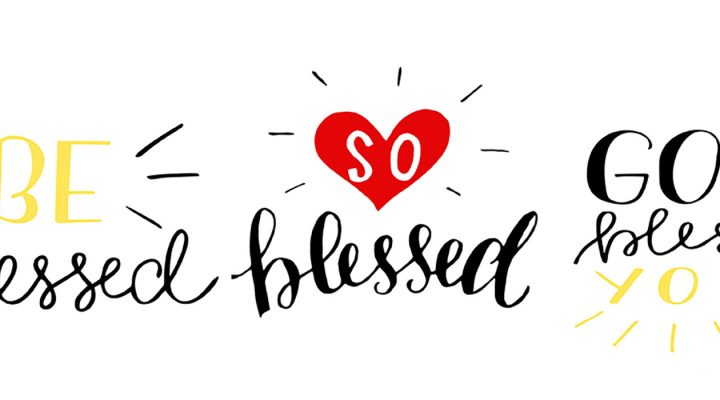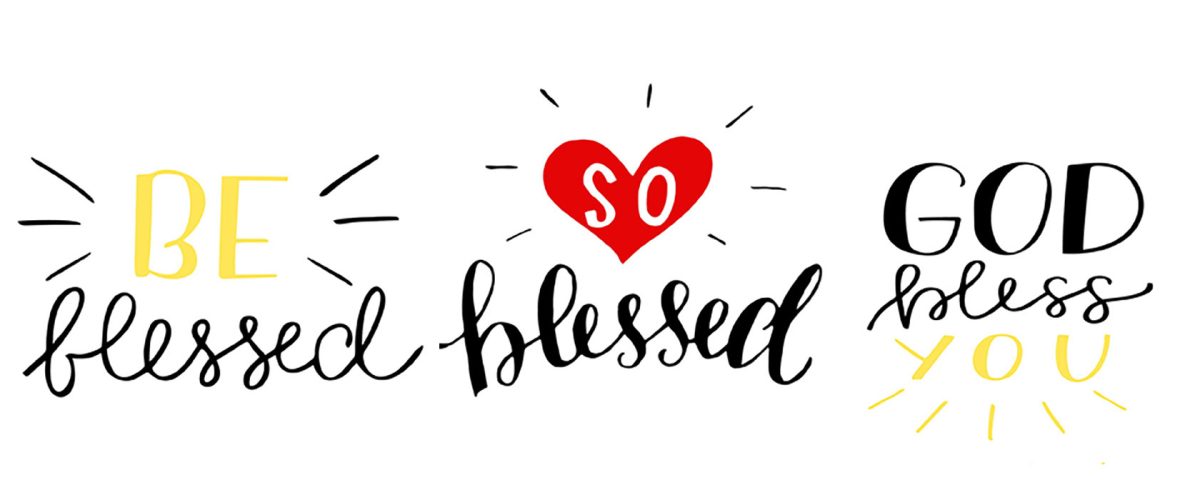This is the third in a November series produced by BNG on what it means to be “blessed,” a word so flippantly used that it often loses meaning.
One morning nine years ago while driving my children to school (and apparently preparing for a sermon), I asked my daughter the first theological question she ever heard, “What do you believe God looks like?”
On queue like a preschool Pelagius, she said, “A baby.”

Andrew Daugherty
The Celtic theologian Pelagius (c. 354-418) saw creation as being very good and a revelation that God created the world with original blessing, not original sin. Another way to say it is that the Beholder and the Beloved are not separated by sin. They are united by love.
When we look into the face of a newborn child, we are looking into the face of God freshly born among us. It is a way of saying that from the very beginning, God creates the world and calls it “very, very good.”
My daughter was quoting my favorite heretic and didn’t know it. Surely, however, this is the genesis of what it means to be blessed. We do not earn the right to be blessed any more than we earn the right to be born. Being blessed first and foremost is the cause of being, not a consequence for being.
“We do not earn the right to be blessed any more than we earn the right to be born.”
The opposite sentiment appears true in a performance-based-obsessed American culture where the chronic use of the word “blessing” or the associated #blessed hashtag trivializes its essential meaning. Rather than seeing the gift of life itself as the original blessing, there is nothing quite like invoking divine endorsement in order to brag about whatever our happy circumstances may be or to boast about our accomplishments.
Duke University theologian Kate Bowler captures this well with her usual combination of snark and spark: “We don’t live in a culture of blessing. We live in a culture of #blessed. #Blessed is attached to anything from a birth announcement to a new boyfriend, a rental car upgrade to barely there bikini shots.”
Seldom if ever is #blessed trending on Twitter, Instagram or Facebook (Fakebook?) because of any spiritual sense of “original blessing” or (perish the thought) that it’s actually relevant to how Jesus defines “blessed” in his foundational Gospel message constituted in the Beatitudes.
“Jesus chooses to turn his spiritual camera around on others in order to spotlight weakness over what looks winning.”
Almost 600 uses of some version of God’s favor show up in the Bible. And then Jesus chooses to turn his spiritual camera around on others in order to spotlight weakness over what looks winning. Vulnerability over what looks victorious. Authenticity over what looks like fashionable. Jesus would not make a very good social media mogul by popular standards.
His teaching about what it means to be blessed is preoccupied with the powerless and the poor and the poor in spirit. His eight Beatitudes (Matthew 5:3-12) offer wisdom to “be an attitude” that sees blessing in the bottoming out of suffering, the understanding of poverty, the healing that comes through grief, the fullness that comes with the emptiness of spirit, the misery of persecution and the practice of peacemaking. No person needs to be a biblical scholar to see that the American dream and Jesus’ dream of the kin-dom of God are not the same. It is starkly clear that Jesus doesn’t define “blessed” the same way any #blessed hashtag usually does.
To clarify more, there is nothing wicked about feeling fortunate if our children happen to be healthy and wealthy and emotionally well-adjusted. There is nothing wrong with scoring front-row seats to the New Kids on the Block reunion tour. How #blessed if our vacations are lavish or if the giant job promotion finally has come. By all means, flaunt away when it comes to matters of hard work, privilege, financial discipline or being biologically lucky enough to have movie-star good looks. It’s just that these things do not insinuate divine blessing. Call it #bragging or #luck or anything except #blessed.
“If we listen to Jesus, what it really means to be blessed is usually what we never think of as blessed.”
Supreme happiness or “happiness that goes deeper than the word happy” is the sheer blessing of being born and being alive. There is no #blessed hashtag that can make this untrue. And if we listen to Jesus, what it really means to be blessed is usually what we never think of as blessed. Health and wealth are not baseline blessing barometers.
Someone can have cancer or not have cancer and still be blessed. A woman can work multiple jobs and still be scraping pennies and be just as blessed as the man making seven plus figures in the corner office.
In the name of what is true and noble and good and lovely, we are not just blessed when we feel happy. We are blessed when we feel pain, too. We are not just blessed when we get to drive the car we’ve always wanted. We are blessed we can still drive. We are not only blessed when we go on a dream vacation with a best friend. We are blessed when she comes over to make dinner after the hardest of days.
Blessed are you who grieve and don’t deny your pain. Blessed are you who feel empty in spirit. Blessed are you who feel invisible. Blessed are our kids who sit alone at the cafeteria table and who are bullied and feel alone. Blessed are our kids who stand up for them. Blessed is the spouse who doesn’t know what else to do.
If you can’t say “too blessed to be stressed” with a straight face, then blessed are you. Because you have stopped pretending that life is something that it’s not. Bless you. With or without a hashtag.
Andrew Daugherty serves as senior pastor of Pine Street Church in Boulder, Colo.
Other articles in this series:
‘We’re so blessed!’ | Opinion by Mark Wingfield
Blessing is not about good fortune; it is akin to God’s love | Opinion by Ann Bell Worley


